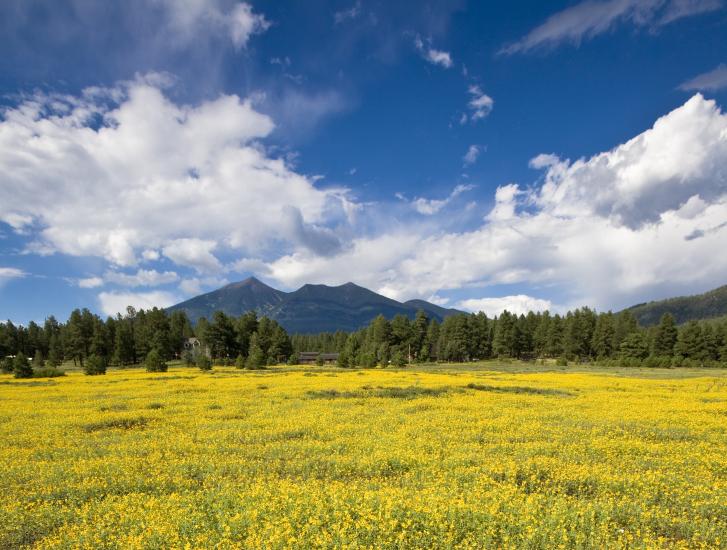How to Avoid Altitude Sickness in Flagstaff
Ensure you enjoy every moment of your trip to Flagstaff by following these tips.

Picture yourself standing amidst towering pines, gazing at star-filled skies that seem close enough to touch. This is Flagstaff - a mountain town where adventure and natural beauty collide at approximately 7,000 feet above sea level. Before you lace up your hiking boots or grab your telescope, discover how to keep altitude sickness at bay and ensure you're ready to embrace all the wonders our city has to offer.
Can you get Altitude Sickness in Flagstaff?
While 8,000 feet and higher is generally considered high-altitude, it is fairly common for people to begin experiencing symptoms of altitude sickness between 5,000-8,000 feet. Given Flagstaff’s elevation you could absolutely experience altitude sickness here.
Some symptoms to look out for include:
- headaches
- dizziness
- nausea
- fatigue
- shortness of breath
- difficulty sleeping
Seek immediate medical attention if you experience changes in vision, chest tightness or pain, clumsiness, confusion, or slurred speech.

5 Tips to Avoid Altitude Sickness
1. Take It Easy on Your First Day
Flagstaff is home to breathtaking parks and monuments, and while you might be eager to explore as soon as you arrive, it's wise to give yourself a day to acclimate. Trust us – you'll have more energy to enjoy all our area has to offer if you take it slow at first!
Here are a few relaxing suggestions for day 1 of your itinerary:
- Treat yourself to a Nordic Spa Experience at High Country Motor Lodge.
- Embark on a leisurely, self-guided tour of Flagstaff's Historic Downtown.
- Learn about our history at the Museum of Northern Arizona.
- Leave your elevation worries behind and go out of this world with stargazing at Lowell Observatory.
2. Stay Hydrated
The air is drier at higher altitudes, which will dehydrate you much more quickly. To combat this, it is recommended that you drink twice your normal water intake and replenish electrolytes often. Avoid caffeine and alcohol, including coffee and tea, at least one day prior to traveling to higher altitudes. Once you're feeling comfortable at this elevation, sample the rich flavors of our coffee shops and breweries.
3. Boost Your Caloric Intake
Since the air is thinner here, your body will have to work harder to get enough oxygen and will burn a lot of calories doing so. Throughout your stay, increase your calorie intake and focus on eating lots of nutrient dense foods. This is a great opportunity to explore our flourishing culinary scene!
4. Protect Against UV Rays
Make sure you apply plenty of sunscreen during your stay! The atmosphere is thinner at higher elevations, which means we have less protection from the sun's UV rays than those at sea level. This holds true year-round, so be sure to pack a hat and sunglasses too.
5. Dress in Layers
Being at a higher elevation means temperatures can change noticeably throughout the day. If you find yourself needing a sweater, light scarf, or simply want a few extra layers, we suggest popping into some of the local shops – they're bound to have what you're looking for.